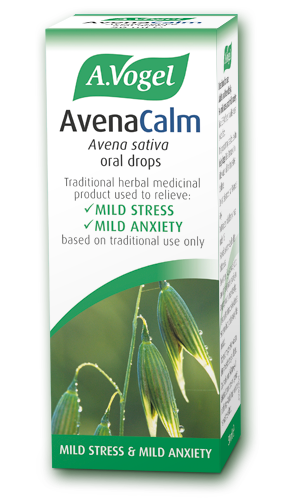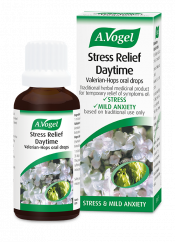What are the statistics when it comes to women’s mental health?
In November 2018, the NHS published the findings of a survey which looked at the mental health of children and young people over a period of sixteen years. The survey, which included around 9000 participants, found that nearly 1 in 4 young women were affected by a mental illness such as depression and anxiety, plus young women between the ages of 17 and 19 especially, were more likely than young men of similar age to have problems.1
This is a pretty shocking statistic but not one that’s not unheard of. According to MentalHealth.Org.UK, around 1 in 4 women will require treatment for depression at some time compared to 1 in 10 men, plus women are apparently twice as likely to suffer from anxiety too!2
This all seems to paint a pretty bleak picture when it comes to women’s mental health and certainly, from a specific outlook, it does appear that women seem to suffer more from psychological problems compared to their male counterparts but, is this really a true reflection of how things actually stand? Here, I’m going to explore whether or not women really are more vulnerable to mental health problems compared to men and suggest a few possible reasons for why these statistic might not be as reliable as they appear.
Why might women be more vulnerable to compared to men?
When it comes to mental health problems, there are a number of factors that would appear to place women under more pressure compared to men.

1 – Woman are more likely to be the primary caregivers: Firstly, while women are no longer expected to keep the home or resign their jobs after marriage, many still act as the primary caregivers in their family in addition to working full time jobs. Even women in their 50s and 60s are still the main carers for older relatives – in fact, Carers UK estimates that of the 6.6 million unpaid carers in the UK, 58% are women.3 Visibly, there is definitely quite a bit of pressure being placed on women in the home as they have to juggle multiple responsibilities; this is the perfect recipe for stress and anxiety.
2 – Woman struggle more with hormonal fluctuations: You also have to consider that women experience greater hormonal fluctuations throughout their lives compared to men – periods, pregnancy and eventually menopause can bring about a number of unpleasant physical and emotional symptoms – menopause especially, as at this time oestrogen levels can decline extremely quickly leading to problems such as anxiety, mood swings, low mood and fatigue.
3 – Women may be more self-conscious: Okay, so women at a later stage in life have to contend with quite a lot of different pressures but what about younger women? Well, there could still be a degree of strain here as young women are traditionally perceived to more self-conscious than men, particularly when it comes to their appearance as, unfortunately, they are more likely to be judged on their looks. Thankfully, attitudes are changing and body positivity is becoming more ingrained into the public consciousness; however, many young women are still being exposed to conflicting messages by the media. This is not a problem just limited to women though –25% of those diagnosed with anorexia or bulimia are men and this figure is rising, in addition to male cases of BDD (Body Dysmorphia Disorder), an unfortunate trend!5
Social media especially is also starting to play a greater role when it comes to influencing mental health. The NHS report I mentioned earlier found that young people with mental health problems were more likely to be active on social media whilst another study conducted by the University of Copenhagen found that social media sites like Facebook were often associated with higher levels of unhappiness and dissatisfaction. This study is particularly relevant as 86% of the participants were women.6
4 – Women are often more susceptible to abuse: Finally, if we’re going to tackle the tricky issue of women’s mental health then this isn’t an issue that can be glossed over. The statistics are far from reliable, as I will go on to discuss soon, but in the UK it’s estimated that in the year ending 2017, 1.2 million women were victims of domestic abuse.7 This experience, understandably, does leave some trauma and is definitely capable of affecting the mental health of sufferers. In fact, 30-60% of women with a mental health problem have experienced domestic violence although, as I will soon discuss, men are definitely not immune to this particular issue but unfortunately many cases do go unreported making accurate statistics hard to calculate.
Are men really less vulnerable?

The statistics I’ve discussed so far in regards to women’s mental health have been very sobering; however, these statistics should not necessarily be taken as an absolute. Statistics rely on people being willing to have their experiences recorded but, due to the stigma surrounding mental health problems, many are unwilling to do this. Traditionally, it is more acceptable for women to be open with their feelings and they are more likely than men to seek professional help when they encounter health problems.
Men, on the other hand, until recent years were expected to be more reserved and stoic with their own feelings which means that even if they were feeling stressed or anxious, they would be less likely to admit it, let alone seek help. This means that the statistics regarding men’s health cannot be taken at face value and often don’t reflect reality. Naturally this out dated attitude has given birth to a number of problems over the years and it seems that finally society is starting to realise just how much damage bottling things up has done.
Men, for example, are more vulnerable to problems like addiction - according to DrugAbuse.gov, men are more likely than women to use illicit substances and experience overall higher rates of alcohol use.8 When it comes to mental health problems, illegal and legal substance abuse can have some profound repercussions with even alcohol addiction being associated with higher levels of anxiety as well as numerous other health problems such as heart disease and poor liver function. It’s possible that because men are not encouraged to express their emotions in a healthy, positive way they often find other, destructive outlets.
It’s also been speculated that men may be more susceptible to major depressive symptoms too. A study published by the American Public Health Association, found that the level of major depression was higher amongst men9 despite women still being more likely to develop anxiety and depression as a result of stress. The statistics closer to home appear to corroborate this – here in the UK, 75% of suicides are men10, a devastating percentage.
So what’s the verdict?
When it comes to mental health, it appears there is not a gender bias. No one gender has it easier than the other; there are simply different experiences and vulnerabilities. While the statistics may appear to favour women as being more affected by mental health problems there is definitely a big question on how accurate these statistics really are given men’s traditional reluctance to discuss their emotional needs.
What matters the most, regardless of gender, is how you tackle these problems, be it anxiety, stress or a more serious condition such as depression which is why I’m going to take a look at what you should be doing to look after your mental health.
What should you be doing to take care of your mental health?

Whether you’re a man or a woman, what matters the most is that you talk to someone, be it a friend, loved one, colleague or medical professional. They may not be able to offer a direct solution to your problem but the simple act of airing your thoughts and feelings aloud can help to provide some clarification and emotional release. Bottling things up only makes the problem worse in the long-run – the people who love you will want to be there to help you. If you really are struggling with depressive thoughts and feel as though you cannot talk to anyone, I would really urge you to reach out to your doctor, contact an organisation such as the Samaritans or you could find a support service in your area here.
Once you’ve spoken to someone, you could try focusing on ways you can go about making yourself feel happier. Often, in the midst of anxiety or stress, you can feel as though the power has been taken away from you but this is far from true. We can all take small, manageable steps to make ourselves happier, whether it’s thinking of ways to tackle the source of our stress directly or using the NO word once in a while.
Don’t be afraid to set aside some time just for yourself and take the opportunity to explore new interests. Exercise is a great way of combatting stress and has been proven to help  release feel-good chemicals like dopamine. It doesn’t have to be anything too drastic either – a 10 minute walk in the sunshine or some gentle stretches can really do wonders!
release feel-good chemicals like dopamine. It doesn’t have to be anything too drastic either – a 10 minute walk in the sunshine or some gentle stretches can really do wonders!
Finally, you could also try one of our gentle stress remedies if your symptoms are quite mild. AvenaCalm is a good option here as it can help to gently relax your nervous system, enabling you to cope better with troublesome emotions. We also have plenty of useful information on our website regarding stress, anxiety and low mood – here are just a few of our top blogs below which may be relevant to you.
How does stress affect male health?
The dos and don’ts of work related stress
Did you know? Sneaky reasons behind low mood
6 simple tips to help you improve your mood
However, as I’ve mentioned, if you feel your symptoms are more persistent or severe, it is extremely important that you speak to medical professional. Please don’t be afraid to ask for help – most of us will go through a period in our lives when we feel we’re struggling so you are definitely not alone.
2https://www.mentalhealth.org.uk/a-to-z/w/women-and-mental-health
5https://www.ncbi.nlm.nih.gov/pmc/articles/PMC3479631/
9https://ajph.aphapublications.org/doi/10.2105/AJPH.2006.104406









